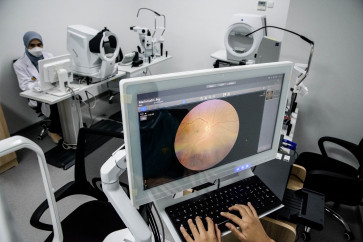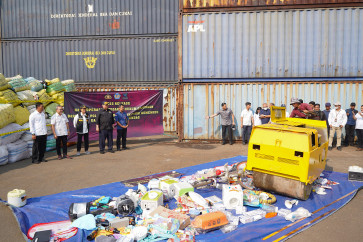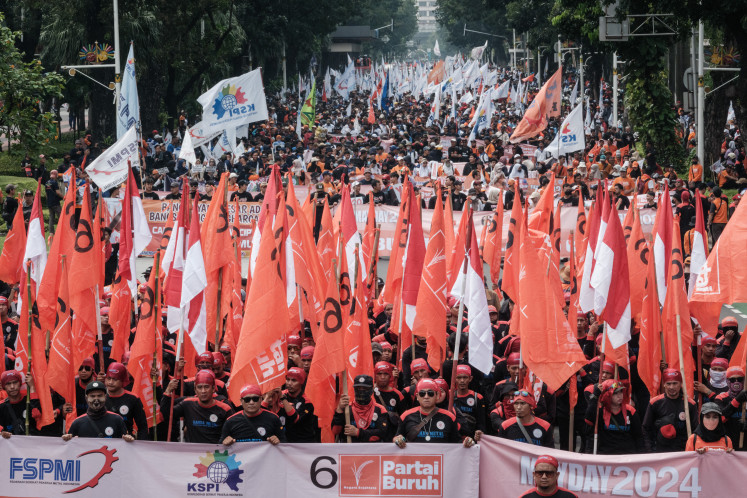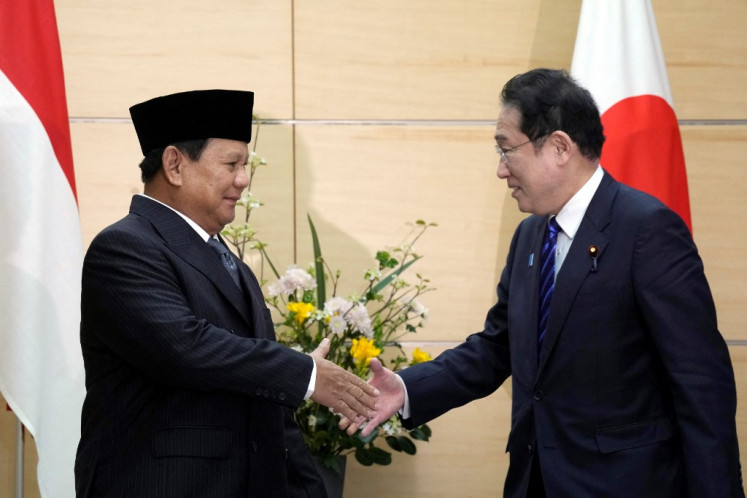Economic recovery sped up
A labor-drive program has been launched as the Yogyakarta provincial administration in an effort to increase the purchasing power of Merapi refugees returning home from evacuation centers
Change Size

A
labor-drive program has been launched as the Yogyakarta provincial administration in an effort to increase the purchasing power of Merapi refugees returning home from evacuation centers.
Yogyakarta’s Community Protection, Development and Welfare Agency disaster management division chief Rusdiyanto said the program, funded by the National Disaster Management Agency (BNPB), would seek to revive salak (known as snake fruit) plantations by involving as many people as possible.
BNPB has allocated Rp 2.5 billion for the program, in addition Rp 25 billion earmarked for building temporary homes for refugees whose houses were destroyed by the eruptions.
“We have taken the form of a labor-drive program, in which we give refugees opportunities to earn money,” Rusdiyanto said in Yogyakarta Saturday.
Snake fruit has been a source of income for thousands of residents living on the slopes of Merapi. The immediate efforts to pursue the program are focused on clearing snake fruit trees from leaves broken fronds that buckled under thick layers of volcanic ash.
Rusdiyanto said that if nothing is done the trees will eventually decay and farmers will need years to recover. “We are launching the program in Turi district, Sleman,” he added.
BNPB head Syamsul Maarif said recovery work for the snake fruit plantations would be able to absorb some 17,000 workers who would work for 10 to 15 days with a wage of Rp 25,000 a day.
“We believe this way is more noble than just distributing money to refugees,” Syamsul said.
Construction of temporary homes for refugees will also use a similar system, whereby bamboo, as the main building material, will be purchased from locals to help them earn money.
Those working on the construction of the temporary homes will be paid between Rp 30,000 and Rp 70,000 a day, depending on their skills.
Syamsul said the execution of both programs would be fully under the responsibility of the respective administrations of the affected regions — Sleman regency in Yogyakarta, and Klaten, Boyolali and Magelang regencies in Central Java.
Kepuharjo subdistrict chief Heri Suprapto said that none of his people had been involved in the labor-drive program because most were still staying at evacuation centers. The subdistrict is one of the worst-hit regions in the Cangkringan district in Sleman.
“We see a labor-drive program is very important to help us restart our lives,” he said.
Heri said many of his people joined sand quarrying activities on the slopes of Merapi or have worked as manual laborers around their evacuation post at Maguwoharjo Stadium in Sleman, Yogyakarta.
“It helps prevent us from being stressed, while at the same time we also earn money,” he said.
The eruptions of the world’s most active volcano, which began on Oct. 26, claimed over 300 lives and forced nearly 400,000 people to flee. Many have been returning home since the authorities reduced the danger zone border from 20 kilometers to between 10 and 15 kilometers of the volcano’s crater.









